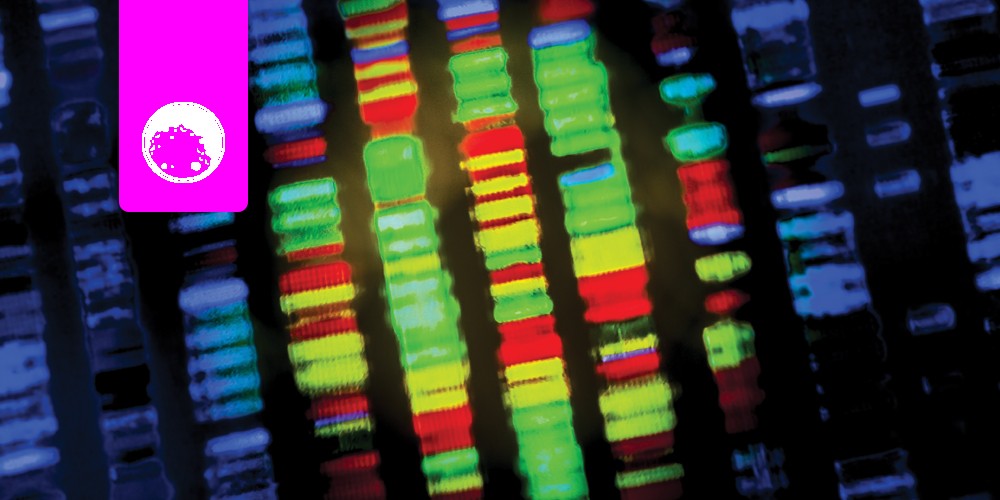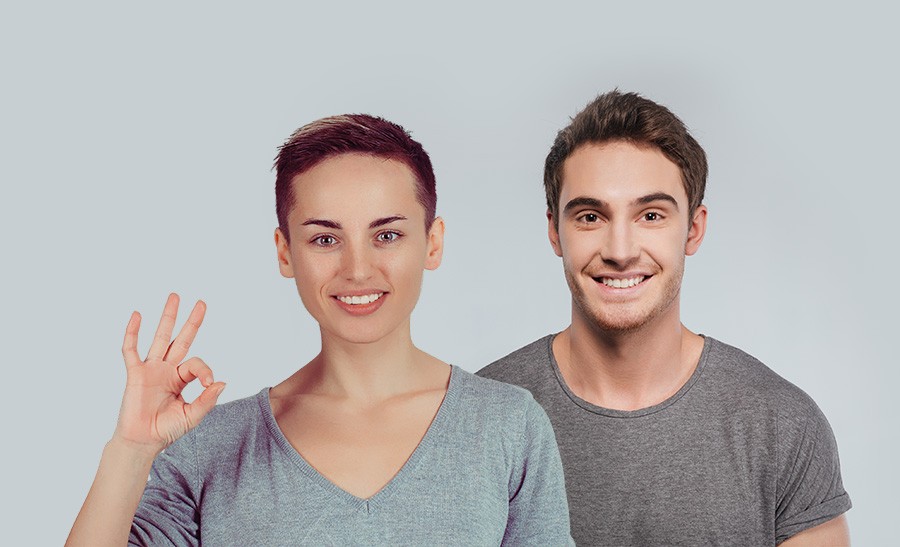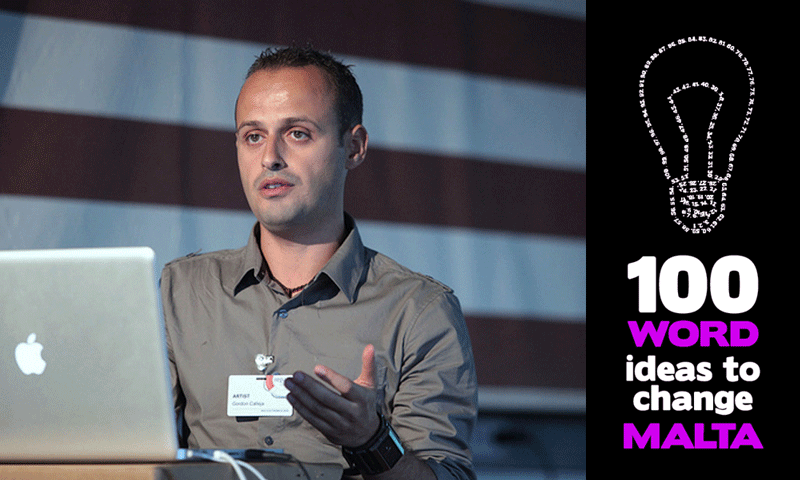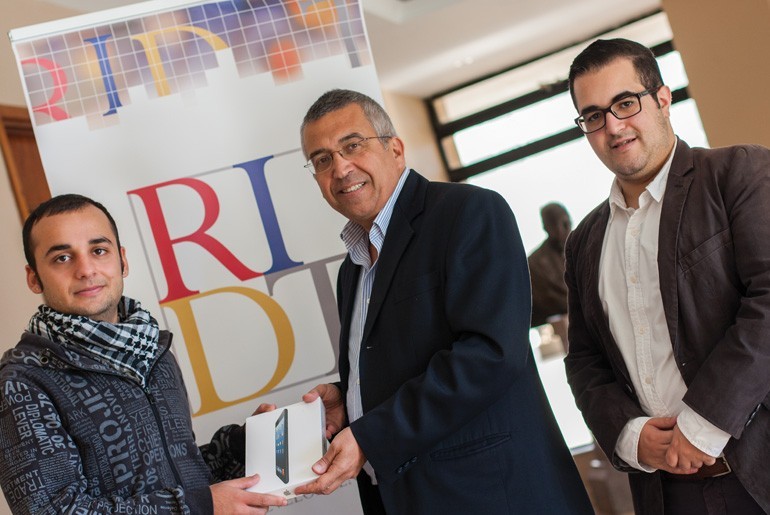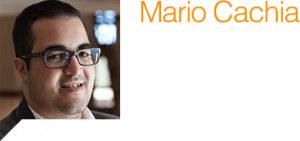60 years ago, the contraceptive pill triggered a social revolution by allowing women to take charge over their reproductive health. Yet, hefty side effects threaten these same rights. THINK analyses what science has been doing to overcome these side effects.
Continue readingAnalysing the building blocks
Gene sequencing for disease treatment
A staggering amount of diseases can be traced back to a genetic cause. Dr Rosienne Farrugia talks to THINK about her team’s efforts to use genome sequencing to eventually secure timely treatment for some very serious conditions.
Continue readingCan the EU empower women in Afghanistan
The European Union’s success relies on positive relationships—cooperation and good will is key. The EU’s Development and Cooperation Policy exists to support these connections. Its focus is on external relations, establishing partnerships with developing countries and channelling billions of euros to them every year. The European Commission plays a crucial role in this regard, managing and implementing directives on behalf of the EU. But what do we really know about the effectiveness of EU aid in helping citizens in developing countries? And how far is female empowerment part of this agenda?
In short—we don’t know much!
Research in this area is scarce, and this is what prompted me to tackle this question myself, under the supervision of Dr Stefano Moncada. My specific focus was on assessing whether the EU is committed to gender equality and female empowerment, taking Afghanistan as a case study. I reviewed all the available aid programming documents from the last financial period, and assessed whether the EU was effectively supporting Afghanistan to achieve the fifth Sustainable Development Goal (SDG) of gender equality. I adopted a mixed-method approach, using content analysis and descriptive statistics. Basically, this meant coming up with a very long list of keywords related to gender, and checking how many times these words appeared in the policy documents. Whoever invented the ‘ctrl + F’ function saved my academic life!
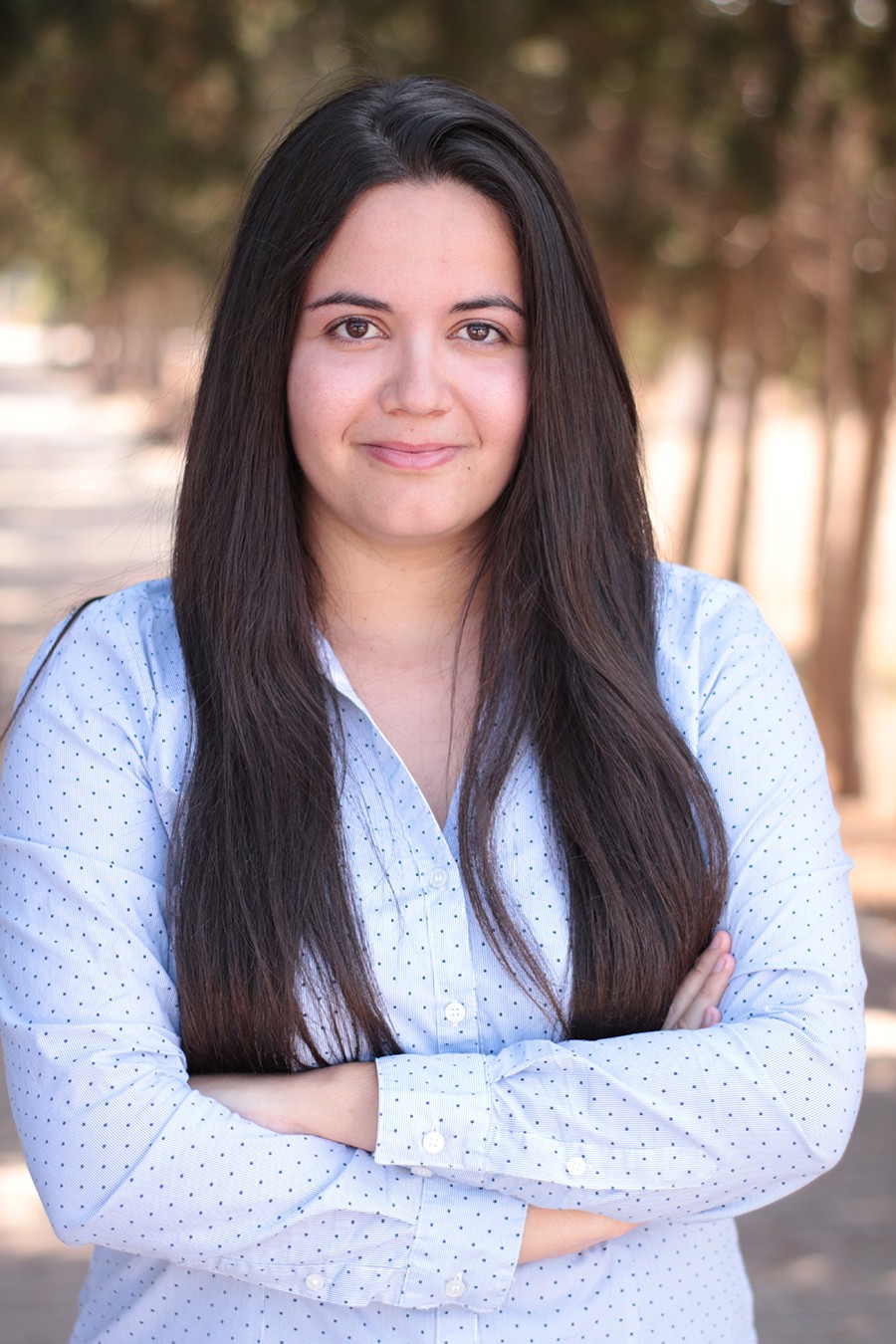
The results of my research were pretty surprising. I found that the EU is now focusing much more on gender empowerment on the ground in Afghanistan than it did a few years ago.
According to my data, and when comparing this to previous studies, it appears that the EU’s commitment to supporting this goal is growing over time. However, I also found that there is substantial room for improvement, as the attention given to such issues is rather conservative, and not equally balanced across all the SDG targets. For example, the need to increase women’s employment is mentioned many more times than the need to support female education or political participation. This is surprising as education is key to many other improvements in wellbeing. Nevertheless, I believe the overall results are encouraging and important, not only to highlight improvements in the effectiveness of the EU’s development and cooperation policy, but also in reply to a growing sentiment that puts into question the EU’s capacity to manage, and lead, in key policy areas. We can only hope that this continues exponentially.
This research was carried out as part of a Bachelor of European Studies (Honours) at the Institute for European Studies, University of Malta. The dissertation received the ‘2018 Best Dissertation Award’.
Author: Rebecca Zammit
Green heat, green power
At face value, renewable energy seems the smartest choice for a cleaner tomorrow. But when green energy cannot be stored, what do we do during scorching summer afternoons and cold winter nights? Cassi Camilleri speaks to Prof. Joseph Cilia and his team to find out more about the innovative solution they are developing.
The movement towards sustainability has been ramping up over decades. Now, it feels like it has reached fever pitch. Headlines are hogged by the latest scary statistic on air, land, or sea pollution. People are rallying, demanding that new measures be implemented to reduce waste and clean up our streets. Despite this call, real advances on these issues always manage to find themselves obstructed by seemingly ‘rational’ arguments.
For one, renewable energy isn’t as reliable and cheap as fossil fuels. Overhauling the status quo is expensive and requires significant effort, both of which make people frown. Solar power depends on the sun, wind power depends on wind, both of which are quite unpredictable. But while this is true, it shouldn’t even be considered an issue. We live in a country on the receiving end of 550,000 GWh of solar energy annually, while we need only 3,484 GWh to cover all energy consumption. Let that sink in.
Of course, I hear your concerns about the quantity of solar panels needed to harvest that energy—Malta is so small and built up. But in reality, only 28% of our island is built up, and just 7% of the remaining land would be required to meet the total energy demand. So yes. There are solutions to our energy woes. And those solutions need to be combined to create the best results.
Thanks to support from Abertax Kemtronics and MCST (Malta Council for Science and Technology), Prof. Joseph Cilia and his team of researchers (Department of Industrial Electrical Power Conversion, University of Malta [UM]) have found that houses with a normal-sized photovoltaic system can supply more than 100% of the total energy they need during summer. During winter, that figure falls to 50%. To manage this drop, energy can be supplied through other sources. Enter the Micro-CHP.
A small combined heat and power (CHP) machine provides seasonal energy in two forms: electrical and thermal. It consists of a standard internal combustion engine coupled with a generator that produces electrical energy. The thermal energy resulting from the engine and exhaust is then recovered using water heat exchangers and reused to heat the house and domestic water.
While similar systems already exist, most are geared towards industrial applications. The rest cost, on average, around €15,000—pricing a large cross-section of society out. The system Cilia and his team have developed makes use of a grid PV system, combined with battery energy storage, a heating and cooling heat pump load, a CHP machine, and LED lighting. It is also an easy-to-install, plug-and-play solution that fits into your current setup, as opposed to a complex installation that would force everything to change with it. By the end of it, the team’s CHP will cost the consumer around €8,000.
Their study of Maltese households showed that in a typical medium-sized household, energy needs vary substantially. The energy fluctuations for a typical Maltese household are usually about 500 kWhr between the summer and winter seasons. In this case, storing this energy in a battery is not feasible. What is feasible is simply making more efficient use of the LPG gas tank that most people already have and use at home. If one wants to be renewable, one can also use ethanol or methanol to operate the CHP, which, if used in combination with a heat pump, can easily reach an efficiency of 150% to 180% in heating mode.
Added to this, the team’s system is unique compared to others on the market. It is connected directly to the main electricity supply, tapping into it whenever the system needs support, while not using mains electricity when enough energy is being produced by the system itself.
The system is scalable due to the plug-and-play concept the system is based on. It can be upgraded as more and more savings are made on electricity bills. ‘The idea is to provide a cost-effective solution that even low-income households can afford,’ says Cilia. This can not only trigger a widespread use of energy generation and storage for domestic use, but also turn consumers into suppliers of their own energy needs. Gone are the days of being dependent on the grid.
Author: Cassi Camilleri
Project A Smart Micro Combined Heat and Power System financed by the Malta Council for Science & Technology, for and on behalf of the Foundation for Science and Technology, through the FUSION: R&I Technology Development Programme.
The Malta Community Chest Fund invests in medical research
From its very inception, the University of Malta Research Innovation and Development Trust (RIDT) aimed to catalyse a societal culture change—to see funding for research and innovation receiving broad-based and sustained support, as well as donations from large corporate donors. Indeed, a few productive years later, a silent revolution is gaining momentum as Maltese society embraces this concept.
To underline this shift, there couldn’t have been a more significant donor than the Malta Community Chest Fund (MCCF). The MCCF, under the patronage of the President of the Republic, is considered by many to be the people’s philanthropic saving pot, the national piggy bank for good causes. It raises funds through its relentless campaigning and public generosity. Following in the steps of her predecessors, the current President, H.E. Marie-Louise Coleiro Preca, has taken this endeavour to new heights with L-Istrina, the yearly telethon fundraiser which hit the €5.5 million mark in 2016.
In December 2014, following an invitation by RIDT’s CEO Wilfred Kenely, The President visited the University of Malta’s research facilities and was shown some of the world-class research projects in areas such as breast cancer, brain-computer interfacing, and kidney disorders. Following that visit, the RIDT engaged with the Office of the President to identify research projects that would be supported by the Malta Community Chest Fund.
The first project to be funded was a study in the genetics of osteoporosis. Dr Melissa Formosa (Faculty of Health Sciences) is leading this project which, having conducted studies on animal models, is looking at Maltese families with members affected with osteoporosis in a bid to to determine whether genetic factors also increase susceptibility to this bone disease.
The President’s commitment has been re-endorsed with the signing of an agreement to finance a three-year National Eye Study to the tune of €132,000. The project investigates the incidence of eye disorders such as glaucoma and cataracts across the Maltese population. To date there is no reliable data available on blindness and common eye diseases. Led by ophthalmic surgeon and visiting senior lecturer Francis Carbonaro (Faculty of Medicine and Surgery), the project will be gathering data from 1% of the Maltese population aged between 40 and 80. The goal is to determine both age and sex-specific prevalence, and the cause of blindness and visual impairment in adults.
In her message to the RIDT, the President of the Republic spoke of her ‘distinct honour and great privilege to offer the full support of the Republic of Malta to the Research Trust. My office is committed to help achieve the aspiration and values we share with the Research Trust to create sustainable economic growth as a means to social development and prosperity.’
The Malta Community Chest Fund has chosen to invest in medical research conducted within the University of Malta. In doing so, it is not only supporting the quest for research-based solutions to our daily challenges, but also sending a clear message to the Maltese community—investment in research pays.
Striving for Scientific Excellence
Research is a complex endeavour. From funding, to project management, quality assurance, and so much more, any active project, whether for applied or fundamental research, needs to tick a whole list of boxes for it to achieve its full potential. This is where we, the Research Support Services Directorate (RSSD), come in.
Our goal is to provide researchers with comprehensive support towards achieving scientific excellence, from identifying and advising on funding opportunities to getting specific accreditation of their scientific methods. And our newly established directorate reflects the growing ambition of the University of Malta (UM) to develop into a world-class research institution. We are a team of nine enthusiastic individuals with very diverse backgrounds.
Having worked and studied (apart from the UM) in institutes such as the University of Cambridge, Max Planck Institute, Imperial College London, University College London, University of Nottingham, the European Institutions, as well as the private companies like GlaxoSmithKline, Teva (Actavis), Novartis and Methode Electronics, our team is excited to bring international and private sector experience to the UM.
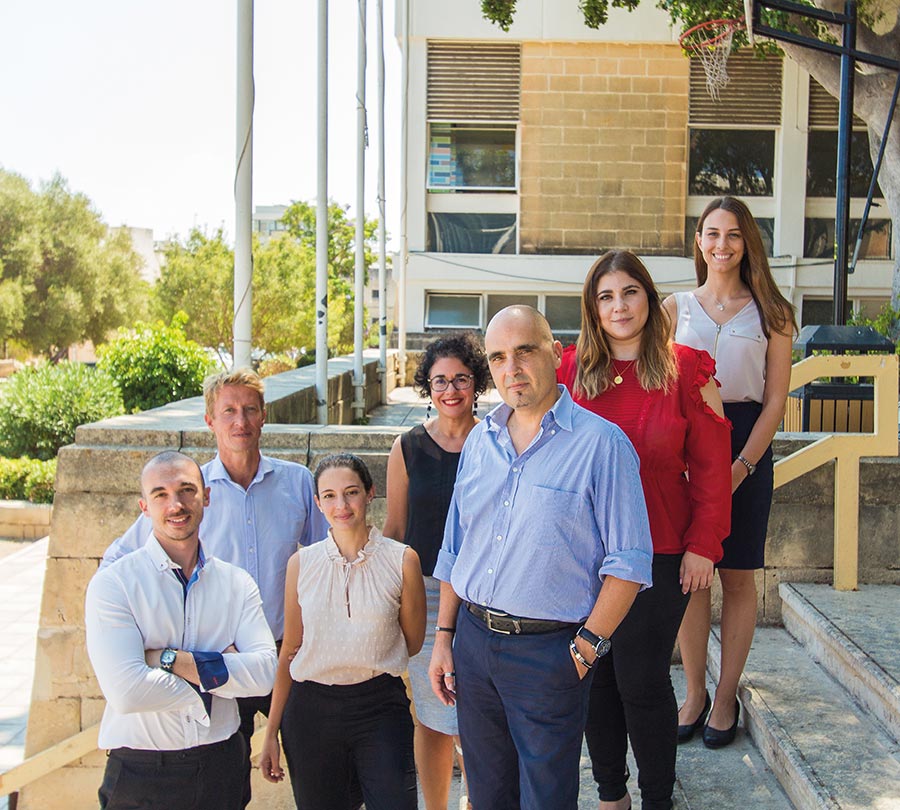
How can RSSD help you?
The most attractive funding opportunities for scientists at the UM nowadays are based on competitive European Union instruments. Preparation for them is intense, and only the most innovative and ground breaking ideas hit the mark. Our team can guide you not only to identify the most suitable funding opportunity, but also on building the right team, all the while ensuring that strict EU guidelines are being followed. We also help you identify and approach collaborators in Academia, private industry, and the state—a requisite of many EU funding programmes. To this end, RSSD aims to be the interface between the academics, researchers, and the general administration, as a one-stop shop for research funding. Once the project is successful and funded, we will then link it with the range of support services available. But that is not where our contribution ends.
On the laboratory and infrastructural side of RSSD, we help the scientific, technical, and laboratory staff at the UM to bring experimental laboratories to a world class level. The multifaceted nature of this work makes it difficult to summarise. Among other things, it involves building services, laboratory output, systems design and commissioning, followed by quality assurance, such as managing standard operating procedures (SOPs) and supporting and writing equipment tenders, creating and managing asset databases, and ensuring proper waste management. We can also contribute to managing your projects, all in the bid to improve the efficiency, productivity, and function of any laboratory.
The next step in this chain of quality assurance is obtaining accreditation for some of the techniques and methods used. To this end, accreditation and SOPs ensure reliable, repeatable, and reproducible measurements, a must for work in and with the private sector.
RSSD will give you the right support needed to achieve your vision.
How to get in touch?
We are based on the first floor in the Regional Building, Triq l-Imħallef Paolo Debono, or simply drop us an email on rssd@um.edu.mt or visit our website at um.edu.mt/rssd
Mainstream gender = mainstream funding
Research agendas change throughout the years. Historical context and economics play a distinct part in what is placed on the priority list. Presently, gender is on top.Keeping in line with the ‘gender mainstreaming’ policies within the EU, researchers are now being asked to put on their ‘gender lens’.
FundMalta
Prof. Gordon Calleja
Picture a Maltese crowdfunding website dedicated specifically to locally based creatives. It would be supported and promoted by government entities to the Maltese public, based locally and abroad. For this to work the public sector plays a crucial role in promoting the site and educating the public on how crowdfunding works.
The site creates a platform for followers of local creatives to contribute towards performances and products made by artists they love. Unlike sites like Kickstarter, products that can be digitally distributed or ordered will remain on the site doubling as a digital distribution platform for locally made works.
This article forms part of The Gaming Issue.
The future is bright, The future is research
Today’s world is unforgiving; we cannot slack. Be it students in academic pursuits, or executives in professional ones, the need to create new things and innovate is essential to keep up with ever-changing times. The RIDT believes that University and its students are the cradle of all needed change. Our aim is to continue promoting and stimulating research within our Campus community. We believe that our students carry this important message best.
For this reason, the RIDT has embarked on campaigns and initiatives to gather more interest and feedback from University students and alumni. The RIDT participated in the annual KSU Freshers’ Week. Here we met and greeted thousands of students just starting out their degrees. At the same time, we launched our Facebook page to regularly update and engage with students. We succeeded in attracting nearly 1,000 followers in less than two months from launch. We felt that this was not enough, and in order to further engage our online audience, we enticed them to become closer to University research. With this in mind, we launched a fresh online competition, the UoM Research Challenge, where participants had to answer questions about research happening at University. The competition was sponsored by GO, who donated an iPad Mini for the fastest person to complete the challenge. We have plenty of fresh, innovative concepts lined up for the New Year.
Throughout December, the RIDT is collaborating with KSU and l-Istrina to promote research within the University and the local community. We want to reach out to raise awareness that research is a tool that can make everyone’s lives better. Many people throughout the world suffer from various socio-economic problems, ranging from deadly diseases and famine to poverty and unemployment. Through research, we can truly make a difference to all of these people, and we want to start here, from home. By fostering a sense of awareness and belonging within our students and alumni, we can look forward to a bright future. In this future, we would be proud of a University making a difference in Malta and the rest of the world.
RIDT is the University’s Research Trust aimed towards fostering awareness and fundraising for high-calibre local research. For more information, visit
www.ridt.eu or find RIDT on Facebook www.facebook.com/RIDTMalta
Christopher Curmi, winner of the UoM Research Challenge, awarded an iPad Mini by the RIDT CEO Wilfred Kenely. Photo by Edward Duca
Author: Mario Cachia, RIDT Campaign Officer


